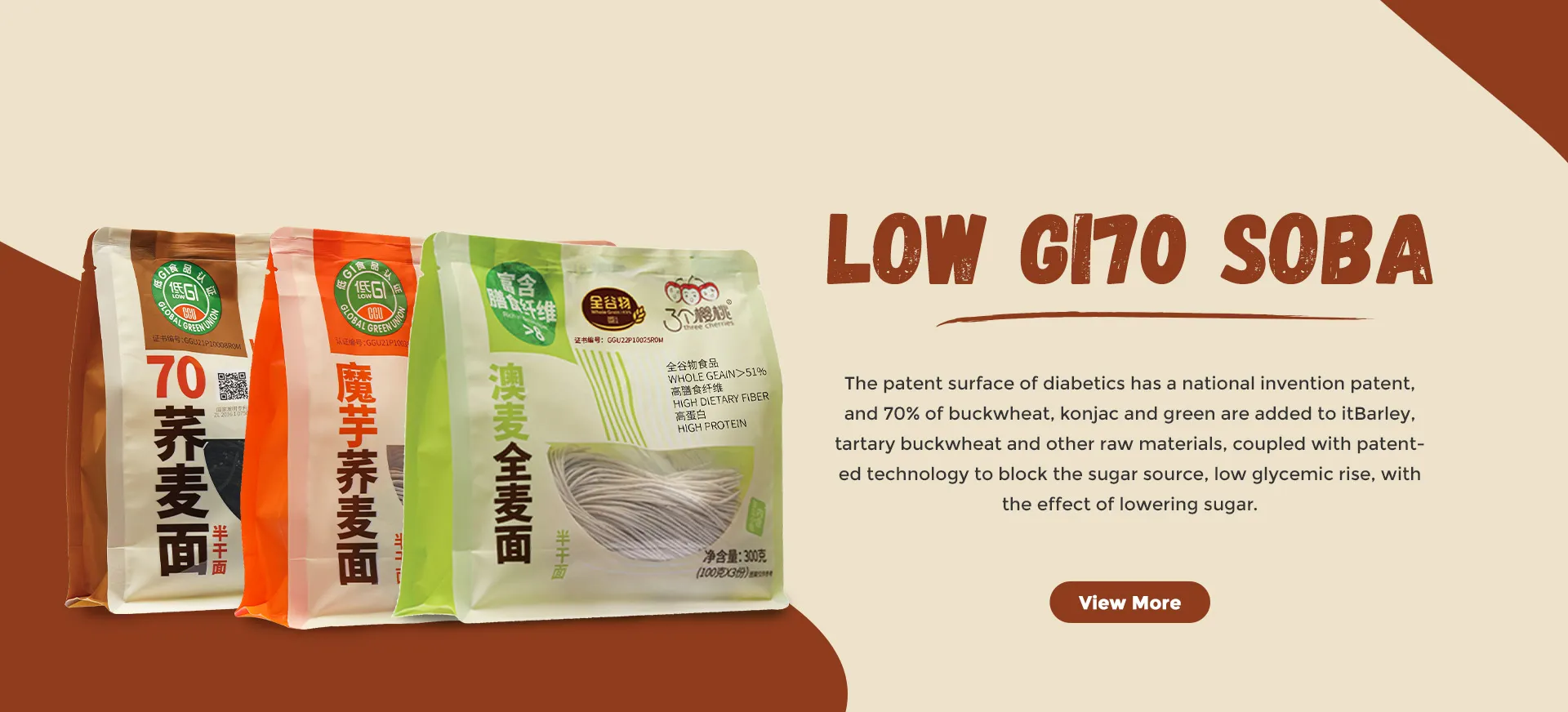Are Udon Noodles a Healthy Choice for Your Diet?
Are Udon Noodles Healthy? A Comprehensive Exploration
Udon noodles, the thick and chewy Japanese noodles made from wheat flour, have become increasingly popular worldwide for their versatility and comforting texture. Often served in hot broth or stir-fried with vegetables and proteins, udon can be a delightful addition to various meals. However, the question remains are udon noodles healthy? This article delves into their nutritional profile, health benefits, potential drawbacks, and tips for incorporating them into a balanced diet.
Nutritional Profile of Udon Noodles
Udon noodles are primarily made from three simple ingredients wheat flour, water, and salt. This simplicity contributes to their nutritious nature. A typical serving of cooked udon noodles (about 200 grams) contains the following
- Calories Approximately 200-220 calories - Carbohydrates About 40-45 grams - Protein Around 6-8 grams - Fat Usually less than 1 gram - Fiber Generally low, around 1-2 grams
Udon noodles are relatively low in fat and contain a moderate amount of carbohydrates, making them a good energy source. However, they are also low in fiber compared to whole grain alternatives. Therefore, while they provide energy, they may not keep you feeling full for as long as high-fiber foods.
Health Benefits of Udon Noodles
2. Versatile Ingredients Udon noodles can be paired with a variety of nutritious ingredients like vegetables, lean proteins (such as chicken, tofu, or seafood), and broths rich in vitamins and minerals. This flexibility allows for the creation of balanced meals that can cater to various dietary needs.
3. Low in Fat With minimal fat content, udon noodles can be a suitable option for individuals monitoring their fat intake, such as those following a low-fat diet.
Potential Drawbacks
are udon noodles healthy

1. Low Fiber Content One significant downside of traditional udon noodles is their lack of fiber. This low fiber content could lead to quicker digestion and potential spikes in blood sugar levels. Incorporating more fiber-rich ingredients into your meal, such as vegetables, can help mitigate this issue.
2. Refined Carbohydrates Udon noodles made from white flour are considered refined carbohydrates, which can lead to less stable blood sugar levels compared to whole grain options. For those managing diabetes or seeking to maintain stable energy levels, consider looking for whole wheat udon or alternative noodle types made from brown rice or buckwheat.
3. Sodium Watch Many udon recipes include broth or sauces that can be high in sodium. Excess sodium can contribute to high blood pressure and other health issues. It’s essential to choose low-sodium options or to prepare your own broth to keep sodium levels in check.
Tips for Incorporating Udon Noodles into a Healthy Diet
1. Load Up on Vegetables Enhance the nutritional value of your udon noodle dishes by adding plenty of vegetables. Broccoli, carrots, spinach, and bell peppers are excellent choices that contribute essential vitamins, minerals, and fiber.
2. Choose Lean Proteins When preparing udon, opt for lean protein sources. Tofu, chicken, shrimp, or edamame can elevate the protein content of your meal, helping keep you satiated for longer.
3. Mind the Sauce Be mindful of the sauces you use. Homemade sauces can allow you to control the amount of sugar and sodium. Additionally, consider using healthier alternatives like low-sodium soy sauce or homemade broth.
4. Explore Whole Grain Options If available, consider trying whole grain udon noodles. Whole grains offer more fiber and nutrients than their refined counterparts, enhancing the overall healthfulness of your meal.
Conclusion
In summary, udon noodles can be a healthy part of your diet when prepared thoughtfully and combined with nutritious ingredients. Their status as a low-fat, energy-producing food makes them a viable option for many. However, be cautious of their low fiber content and potential sodium levels in accompanying sauces. By making mindful choices, udon noodles can indeed contribute to a balanced and healthy diet.
-
Unlock the Delicious Potential of Yam NoodlesNewsAug.11,2025
-
The Authentic Taste of Lanzhou NoodlesNewsAug.11,2025
-
Savor the Art of Hand Pulled NoodlesNewsAug.11,2025
-
Indulge in the Timeless Delight of Spaghetti BologneseNewsAug.11,2025
-
Indulge in the Rich Flavor of Braised Beef NoodlesNewsAug.11,2025
-
Elevate Your Meals with the Magic of Fresh PastaNewsAug.11,2025
-
Unleash Your Inner Chef with Delectable Italian Pasta CreationsNewsAug.01,2025
Browse qua the following product new the we







